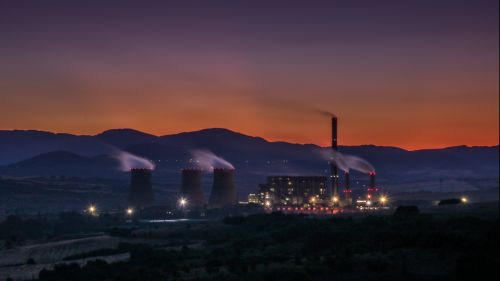Nuclear Energy: Americans Favor Stagnation

While Americans favor nuclear energy in general, they are reluctant to developing new nuclear plants.
How do Americans feel about nuclear energy?
From Chernobyl to Homer Simpson, nuclear energy doesn’t have a stunning reputation, but until recently polls showed a majority of Americans favor its use for energy. In fact it appears that support for nuclear energy is linked with energy availability and that Americans would rather develop other energy sources.
A recent Gallup poll shows a steady dip in support for nuclear energy, to its lowest level since 2001 (44 percent). The polls ask “Overall, do you strongly favor, somewhat favor, somewhat oppose or strongly oppose the use of nuclear energy as one of the ways to provide electricity for the US?” Typically, more than half of respondents favor nuclear energy.
The dip in support for nuclear energy in this poll is likely due to a decrease in concern about the cost and availability of energy. In the same poll, Gallup asked respondents “how much do you personally worry about—the availability and affordability of energy?” If you look at the chart below you can clearly see that as the public is less concerned about energy availability/cost it is more likely to oppose nuclear energy.
What Americans do resist is the expansion of nuclear energy infrastructure. Opinion trends suggest that the US does not want new nuclear energy plants. Earlier this year, Dina Smeltz explored the shifts in opinions on nuclear energy after the Chernobyl and Fukushima Daiichi accidents in 1986 and 2011 (respectively). One poll shows best the opposition to building new plants, which spiked after these accidents. Even in the years prior to the Chernobyl disaster, less than 30% of Americans favored building new plants.
There are probably two reasons people oppose building new plants. The first is that many Americans don’t want a nuclear power plant in their community (60 percent according to a CNN/Opinion Research Corporation survey, March 2011). The second is that respondents would rather see other sources of energy developed more intensively than nuclear plants. A poll conducted by the University of Texas at Austin asked respondents if the federal government should “focus on developing” renewable technologies, natural gas, oil, nuclear, and coal, individually. When asked about this series of energy sources, a majority of respondents still support developing nuclear energy, however, that percentage (on average 52 percent) was consistently lower than support for developing renewable technologies, natural gas, and oil.
The funny thing about this desire to cap nuclear power plants at their current level is that we are better off with new plants. In response to the Fukushima accident, Switzerland proposed in 2013 amending the Convention on Nuclear Safety (CNS)—a legally binding agreement regulating nuclear power plants to promote nuclear safety which all states that use nuclear power are a party to. The proposed amendment would have set specific benchmarks for safety measures that all nuclear power plants would have to meet. These measures would legally bind parties to the CNS to upgrade plants to meet these new standards.
The US (and China and India) rejected the amendment primarily because, according to Mark Hibbs from Carnegie Europe, “plants would have to be shut down because equipping them with state-of-the-art features would be prohibitively expensive and in some cases not feasible.” Hibbs compared nuclear energy in the US to that in Europe, where safety standards are highly regulated, and concluded that safety standards in the US are far more market-driven. So, if the undesirability of new plants is a source of the lack of enthusiasm for nuclear energy, it’s misplaced. In the US you’re safer living near a new plant than an old one.

